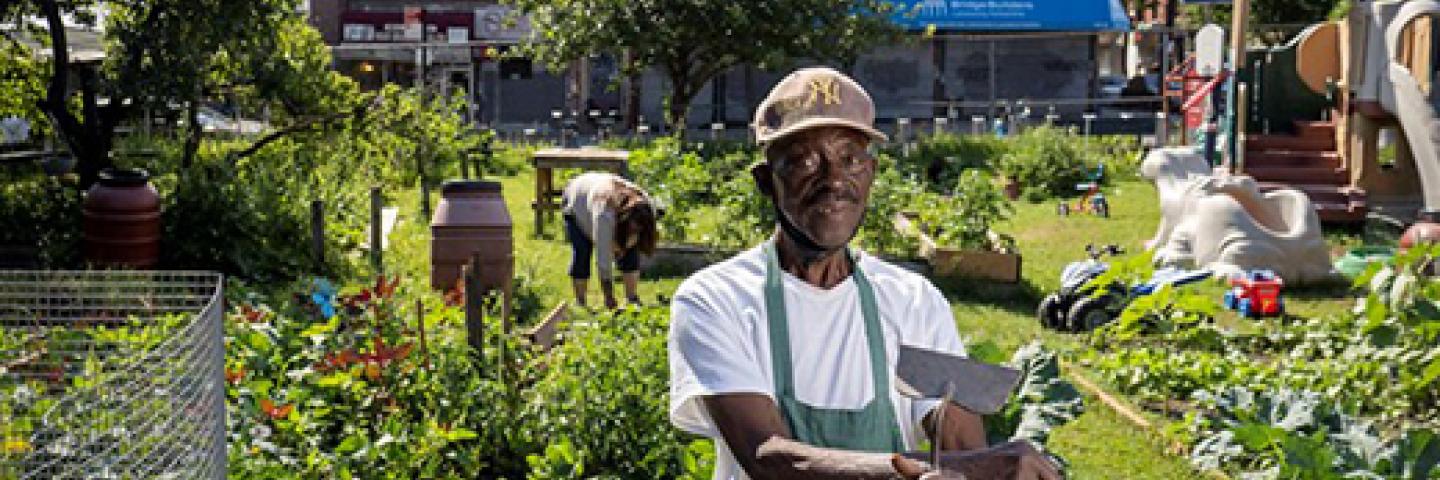
NRCS is committed to ensuring that its programs and services are accessible to all our customers, fairly and equitably, with emphasis on reaching the underserved and socially disadvantaged farmers and ranchers, and tribes of our state.
Outreach and Customer Engagement
NRCS is committed to ensuring that its programs and services are accessible to all our customers, fairly and equitably, with emphasis on reaching the underserved and socially disadvantaged farmers and ranchers, and tribes of our state.
The California Outreach Team is a group of specialists in communication, planning and resource identification, dedicated to this commitment. The California Outreach Team designs and implements specific outreach activities that allow full participation of traditionally underserved individuals and groups.
Vision
As conservationists and as an Agency dedicated to helping people help the land, both the land and the people benefit most if our outreach is inclusive.
The vision of Outreach California is that we will reach out to and support all customers equally with quality information, technical assistance, conservation planning and access to Farm Bill programs.
Policy
Outreach is an integral part of the overall delivery of NRCS programs and services to customers and potential beneficiaries. NRCS will conduct business to ensure that all programs and services are made equally accessible to all customers, with emphasis on the underserved (National Outreach Policy GM_230_406 - Part 406).
Beginning, and Limited Resource Farmers/Ranchers
The Food, Conservation, and Energy Act of 2008 (2008 Farm Bill) continues to address the unique circumstances and concerns of socially disadvantaged farmers and ranchers, as well as beginning and limited resource farmers and ranchers. It provides for voluntary participation, offers incentives, and focuses on equity in accessing U.S. Department of Agriculture (USDA) programs and services. Enhancements include streamlined delivery of technical and financial assistance; improved programs and services; and flexibility in decision making (with most decisions made at the Tribal, State, or local level).
Definitions
A Beginning Farmer or Rancher means an individual or entity who:
1. Has not operated a farm or ranch, or who has operated a farm or ranch for not more than 10 consecutive years. This requirement applies to all members of an entity
2. Will materially and substantially participate in the operation of the farm or ranch.
- In the case of a contract with an individual, individually or with the immediate family, material and substantial participation requires that the individual provide substantial day-to-day labor and management of the farm or ranch, consistent with the practices in the county or State where the farm is located.
- In the case of a contract with an entity, all members must materially and substantially participate in the operation of the farm or ranch. Material and substantial participation requires that each of the members provide some amount of the management, or labor and management necessary for day-to-day activities, such that if each of the members did not provide these inputs, operation of the farm or ranch would be seriously impaired.
Limited Resource Farmer or Rancher
A Limited Resource Farmer or Rancher or Forest Owner is an applicant:
With direct or indirect gross farm sales not more than the current indexed value in each of the previous 2 years, and
Who has a total household income at or below the national poverty level for a family of four, or less than 50 percent of county median household income in each of the previous 2 years.
An entity or joint operation can be a Limited Resource Farmer or Rancher if all individual members independently qualify.
Indian Tribes
Indian Tribe means any Indian Tribe, band, nation, or other organized group or community, including any Alaska Native village or regional or village corporation as defined in or established pursuant to the Alaska Native Claims Settlement Act (43 U.S.C. 1601 et seq.) that is Federally recognized as eligible for the special programs and services provided by the United States to Indians because of their status as Indians.
Additional Information
Community Outreach Meetings in California
The vision of Outreach California is that we will reach out to and support all customers equally with quality information, technical assistance, conservation planning and access to Farm Bill programs.

